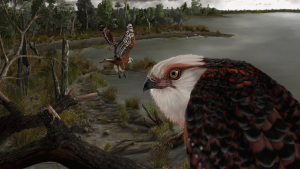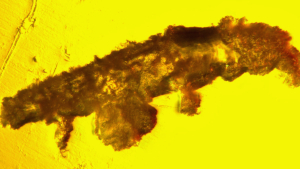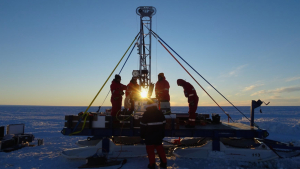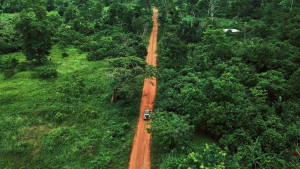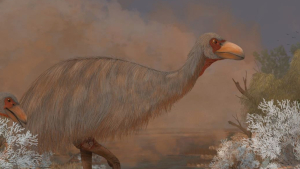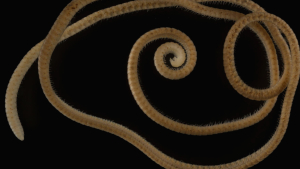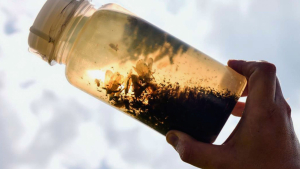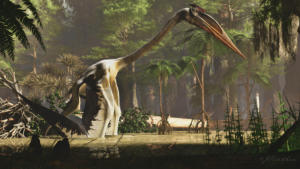The number of butterflies has decreased significantly in many parts of Germany in recent decades: in Bavaria, for example, the stocks have shrunk by two thirds. Many species are considered to be endangered or are already extinct regionally. However, the Geißklee-Bläuling (Plebejus Argus) has found an unusual refuge after severely displaced from its original habitat in changed land use. The two biologists Thorsten Münsch and Thomas Fartmann from the University of Osnabrück describe in "Insect Conservation and Diversity" that the moth is now increasingly setting in limestone breaks, at least in parts of northern Germany, while he has disappeared from meadows in the cultural land.
It is a typical inhabitant of open limestone or gypsum grasslands, which were formerly kept open by grazing livestock. Due to afforestation, lack of grazing and over-fertilization, however, these habitats have shrunk considerably, which is why the population of butterflies and other insects dependent on them has declined massively. This is also shown by the study by Münsch and Fartmann: On the abandoned meadows they examined, they could no longer detect any honeysuckle blues, in managed meadows they were missing in slightly more than 40 percent of the areas.
But the animals have found a substitute habitat: actively managed quarries. The insects lived in all nine -examined quarries in which were dismantled. In the case of placed areas, this still met to 60 percent. Their total number was also four times higher in the quarries than in the meadows. The reason for this is in the special life cycle of the bluebells, the two scientists write.
As the name suggests, the blues lay their eggs on honeysuckle clover, which also grows on thin soils and heavily disturbed locations, where stronger plants cannot displace it at first. After hatching, the caterpillars are guarded by ants, which in turn are rewarded with a sticky secretion, on which they also feed. After pupation, the butterfly offspring is taken to the ant den, where it hatches.
In the past, Auerochsen or cattle kept the necessary places free for the goat clover or kept the competition released. Today the excavators and trucks do this in the quarries. The open rock also ensures a warmer microclimate from the ants and moths, while on the meadows by fertilization grasses and certain herbs grow too densely and strongly and thus shade the surface.
However, if quarries are abandoned, they quickly become overgrown. Adapted management is then necessary to preserve heat-loving species here. Other studies have already shown that post-mining landscapes can increase biodiversity if nature is first given free rein and the areas are not "renaturalized" intensively.








